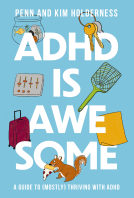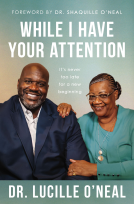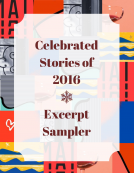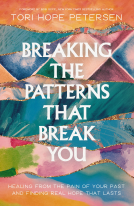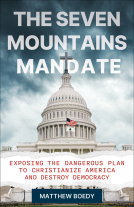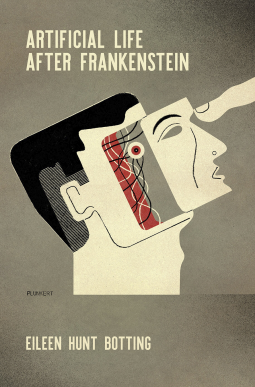
Artificial Life After Frankenstein
by Eileen M. Hunt
This title was previously available on NetGalley and is now archived.
Send NetGalley books directly to your Kindle or Kindle app
1
To read on a Kindle or Kindle app, please add kindle@netgalley.com as an approved email address to receive files in your Amazon account. Click here for step-by-step instructions.
2
Also find your Kindle email address within your Amazon account, and enter it here.
Pub Date Dec 18 2020 | Archive Date Dec 18 2020
Talking about this book? Use #ArtificialLifeAfterFrankenstein #NetGalley. More hashtag tips!
Description
Artificial Life After Frankenstein brings the insights born of Mary Shelley's legacy to bear upon the ethics and politics of making artificial life and intelligence in the twenty-first century.
What are the obligations of humanity to the artificial creatures we make? And what are the corresponding rights of those creatures, whether they are learning machines or genetically modified organisms? In seeking ways to respond to these questions, so vital for our age of genetic engineering and artificial intelligence, we would do well to turn to the capacious mind and imaginative genius of Mary Wollstonecraft Shelley (1797-1851). Shelley's novels Frankenstein; or, The Modern Prometheus (1818) and The Last Man (1826) precipitated a modern political strain of science fiction concerned with the ethical dilemmas that arise when we make artificial life—and make life artificial—through science, technology, and other forms of cultural change.
In Artificial Life After Frankenstein, Eileen Hunt Botting puts Shelley and several classics of modern political science fiction into dialogue with contemporary political science and philosophy, in order to challenge some of the apocalyptic fears at the fore of twenty-first-century political thought on AI and genetic engineering. Focusing on the prevailing myths that artificial forms of life will end the world, destroy nature, and extinguish love, Botting shows how Shelley modeled ways to break down and transform the meanings of apocalypse, nature, and love in the face of widespread and deep-seated fear about the power of technology and artifice to undermine the possibility of humanity, community, and life itself.
Through their explorations of these themes, Mary Shelley and authors of modern political science fiction from H. G. Wells to Nnedi Okorafor have paved the way for a techno-political philosophy of living with the artifice of humanity in all of its complexity. In Artificial Life After Frankenstein, Botting brings the insights born of Shelley's legacy to bear upon the ethics and politics of making artificial life and intelligence in the twenty-first century.
Advance Praise
"Artificial Life After Frankenstein has a clear and powerful message: we are all artificial creatures, and we all deserve respect, even love. Using Mary Shelley's life and her two novels, Frankenstein and The Last Man, as touchstones throughout, Botting explores what she identifies as the three big myths about artificial intelligence: that it will end the world, destroy nature, and extinguish love."—Lori Marso, author of Politics with Beauvoir: Freedom in the Encounter
"This is an original and compelling book. Eileen Hunt Botting offers a wonderfully rich account of Mary Shelley's philosophical vision and its implications for a range of pressing contemporary debates about the meaning of life. Theoretically acute, historically revealing, and beautifully written, Artificial Life After Frankenstein will be of interest to scholars across a range of disciplines."—Duncan Bell, author of Reordering the World: Essays on Liberalism and Empire
Available Editions
| EDITION | Other Format |
| ISBN | 9780812252743 |
| PRICE | $54.95 (USD) |
Average rating from 14 members
Featured Reviews
 Andrea A, Reviewer
Andrea A, Reviewer
Eileen Hunt Botting is a feminist political philosopher writing about science fiction after Frankenstein, focusing on what she calls political SF.
She divides the books into three major parts, that are boult on single essays.
Starting from SF she touches three topics:
- Apocalyptic fictions, the myths about the end of the world, related to the debates about AI since its' boom in the nineties
- Un/natural fictions, focusing on genetic engineering since the first cloning experiments
- Loveless fictions
This book is interesting if you are a student or a professional, but it is not an easy reading for a non-specialist.
See my upcoming review of Artificial Life After Frankenstein in Booklist magazine (American Library Association).
This is an excellent book that I enjoyed quite a bit. It is geared towards an academic audience; however, I think it is quite accessible for those who may not be well-versed in sff studies but are interested in the history and impact of Shelley's work.
The main thesis here is that Mary Shelley created a new field, "modern political science fiction," that spurred new conversations around narratives of apocalypse, the (un)natural, and lovelessness in its time; the author argues that Frankenstein and The Last Man continue to speak to these topics in a contemporary context. This is an incredibly well-researched book unique in its comprehensive exploration of Shelley's works Frankenstein and The Last Man. By "comprehensive" I mean that the book:
1. Situates its own arguments in relation to the field of sff studies, posthuman theory, theories of affect, and theories of dystopian and apocalyptic theory and literature, which is a feat in itself;
2. Provides a very thorough overview of the historical context in which Shelley's books were originally published and discusses precedents and influences as well as how Shelley's books influenced future literary and theoretical developments;
3. Develops strong comparative analyses of Shelley's texts in relation to 20th and 21st century texts, including film and literature;
4. Develops its own interlocking argument about the novelty of Shelley's literary-philosophical positions through the concepts of the apocalypse, the unnatural, and love, expanding from this to comment on the political significance of these lines of thought in the Anthropocene era.
This is a very impressive text that will be of interest to those who work in sff studies, posthuman theory, and more.
 Marissa L, Reviewer
Marissa L, Reviewer
<!-- wp:paragraph -->
<p>Review copy provided by the publisher.</p>
<!-- /wp:paragraph -->
<!-- wp:paragraph -->
<p>What a weird lot of conceptual holes this work of science fiction criticism has in it. There are whole large sections on which Botting is extremely sound--the rights of the child, for example, and its evolution in science fiction from Shelley onward. Good stuff. Unfortunately, that appears to be her previous book, and in this one she has extended her arguments about political science fiction in some very weird ways.</p>
<!-- /wp:paragraph -->
<!-- wp:paragraph -->
<p>Whenever I am presented with a taxonomy, I want to look for its underlying assumptions to find the places where it may be missing things. In this case they leapt out at me without much looking. Botting divides political SF since Shelley into Apocalyptic, Hacker, and Loveless, based on its primary anxieties. Problem: not all political SF <em>is</em> primarily anxious. Problem: in order to make political SF fit those categories, you have to warp interpretations of vast swaths of it.</p>
<!-- /wp:paragraph -->
<!-- wp:paragraph -->
<p>Since Botting seems to have swallowed whole cloth the history of SF that was in vogue 20+ years ago when I was in college, many of the earlier works that would have complicated this taxonomy are absent. I don't know why the recent ones are except that they don't support her argument. She doesn't appear to have ever encountered Lois McMaster Bujold's speech/essay on science fiction as the fantasy of political agency, which is odd because Bujold is not exactly a minor figure in the field she purports to be examining nor is her work even remotely irrelevant to the continuity of Shelley's influence in political SF. Missed opportunities.</p>
<!-- /wp:paragraph -->
<!-- wp:paragraph -->
<p>The text was also filled with small errors and ideas that, if they were not in error, certainly were not supported. Particularly egregious was the label of Shelley as genderfluid in the same passage as Botting directly quoted Shelley as identifying, if anything, more completely with womanhood than Shelley's estimation of the women around her. Genderfluid does not mean the same thing as bisexual/pansexual, and I would expect either a critic in 2020 or at the very least their editor to understand that.</p>
<!-- /wp:paragraph -->
<!-- wp:paragraph -->
<p>I wanted this book to be so much more thoughtful and thorough than it was.</p>
<!-- /wp:paragraph -->
 Dee A, Reviewer
Dee A, Reviewer
While this book can be a bit of a slog (due to the professorial manner of the delivery) it still has many illuminating moments for those brave enough to pursue them all the way to the end. I say professorial because author Eileen Hunt Botting masterful use of English can be a bit daunting at times. Using a Kindle and a dictionary app aided me in my quest to finish the book.
Ms. Botting breaks the book down into sections and chapters. While the Introduction and Interlude were both lengthy, I was drawn in due to the use of past media that most people have probably read or watched. I was completely caught up in Chapter I – Apocalyptic Fictions and the various discussions on AI. This was followed by Chapter II – Un/Natural Fictions, another area I have deep interest in learning more (the biotechnological efforts to create life). Chapter III adds more information while addressing some of the questions that arise, such as will the pursuit of biotech and other “advances” destroy what we have defined as basic humanity.
I found many interesting passages where the author compares Mary Shelley’s life and her books “Frankenstein” and “The Last Man” with literature over the last 200 years, as well as the movies that have also been produced. The back of the book features Ms. Botting’s Notes section, with hundreds of supporting books and articles if one has the willingness to pursue any of her points.
While this might stretch your vocabulary and cause you to slow down in order to process everything, “Artificial Life After Frankenstein” is worth the effort. If you are a scifi fan you will be rewarded, as Ms. Botting will use many familiar references. Fascinating read that will delve into corners where we may not have thought to look. Five stars.
My thanks to NetGalley and The University of Pennsylvania Press for a complimentary electronic copy of this book.
I not only loved Eileen Botting’s latest monograph on Victorian science fiction, but found her theories incredibly useful for my research on Asian monster movies. Incredibly book that’s worth one’s attention!!
 Terri L, Media/Journalist
Terri L, Media/Journalist
This was an interesting look at the ethics of artificial life in this time. This is set against Mary Shelly's Frankenstein. The questions that are raised in this book are timely and very relevant to what is going on in the world today.
 Bookseller 666953
Bookseller 666953
I loved this, but it is for a niche audience. It’s exactly my wheelhouse, and I really admired the range it covered + the ideas the author puts forth and explores in the context of modern technological advancements, but also especially in its referencing of artificial life in art and literature. An engaging and well-researched academic work.
Readers who liked this book also liked:
Penn Holderness; Kim Holderness
Health, Mind & Body, Parenting, Families, Relationships, Self-Help
Tori Hope Petersen
Christian, Parenting, Families, Relationships, Self-Help
